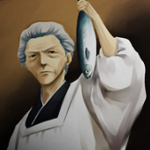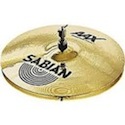|
Having said that: Isn't everything secular by definition samsaric? What is the end-game of secular Buddhism if not to break the cycle of samsaric rebirth or attain the qualities of enlightenment in order to help other beings to do the same?
|
|
|
|

|
| # ? May 14, 2024 22:11 |
|
Today I learned "corporate buddhism" is a thing.  Mo Tzu posted:i think if your buddhism looks down on the buddhism asian people practice, and actively avoids contemporary asian conceptions of buddhism and scholarly takes on buddhist practice, then you're probably going to want to ask yourself why that is because it's probably not for reasons you're gonna like I think this is an important thing, and speaking personally it can be frustrating when someone condescends at me about how "buddhism isn't really a religion, more of a philosophy, you know?" and I know they're trying to be nice in a weird way because they've put religion in this mental box of Things That Are Bad but it's both pushy and feels like an attempt to de-legitimize how millions of people live their lives, while also creating a false dilemma between faith and reason, as though we cannot reason within our faith. Ultimately if you're doing something that works for you that's great, but a lot of the things cloaked in "secular buddhism" are definitely both appropriative in nature and dismissive of buddhism itself as very little of it seems to actually have anything to do with the precepts or anything as opposed to being fashion statements, but that's just been my experience in Portland Oregon and I definitely won't universalize it or sneer at someone legitimately attempting to follow the dharma and make it work for them.
|
|
|
|
Reene posted:Today I learned "corporate buddhism" is a thing. Jobs! Edit: also Roach!
|
|
|
Paramemetic posted:Does it make you a better person, a happier person? Does it reduce your suffering without causing suffering for others? Great then. I appreciate this post.
|
|
|
|
|
Hey I just want to say thanks for the Mindfulness in plain english e-book. I don't know much about buddhism but I began doing yoga and have given mindfulness a shot after my sessions. It's not easy but I'm convinced it's worth it. In a 15 minute session there'll be moments where my thoughts will die down and I'll just feel my breathing and hear how silent the silence is. These moments are hard to grasp on to, but they have this ethereal property. It's quite different from how I usually feel, and then the internal chatter starts back up and I've lost that sense of peace. Really intresting stuff.
|
|
|
|
Paramemetic posted:Does it make you a better person, a happier person? Does it reduce your suffering without causing suffering for others? Great then. The spirit of acceptance and inclusion in this post is extremely encouraging. Perhaps, in the best way, an indication that a new thread might be in order? Red Dad Redemption fucked around with this message at 07:42 on Nov 29, 2016 |
|
|
|
Paramemetic posted:Having said that: My first steps into Buddhism were of the secular Buddhist variety. As far as I can tell, the main idea of secular Buddhism is that, one, meditation practice leads to a healthier and calmer mind, and two, Buddhist ethics seem very nice and self-contained, and also fit with modern values. Secular Buddhism does not generally accept rebirth after death as true, so there's no need to escape it. From a Mahayana perspective, you could say it's an extra small vehicle that only tries to save one person for one lifetime. I think the "secular Buddhism" label is appropriate. It clearly acknowledges where its ideas come from, but also provides the reassurance that it's not religious, which some people have hang-ups about. Of course, it can become a problem when people start calling it the true core of Buddhism, and claiming that other varieties are just superstition and tacked-on myth. I don't think that's specifically a racist thing, people who get weird about this tend to be even worse when it comes to people from their ingroup having what they consider to be superstitious beliefs. I do think secular Buddhism mostly makes sense to people who aren't from a Buddhist culture to begin with.
|
|
|
|
I am not really sure if I am secular or not, i don't really have a Buddhist center to go to, but I subscribe to the practices in Fo Guang Shan. The nearest center is about 200 miles away from me. I feel definitely more like a layman though. So my knowledge is going to be weaker. But I do appreciate this civilized discussion, and the fact that you allowed me to participate.
|
|
|
|
We don't really have the velocity of the other religion threads and we're not too bloated or anything, but maybe it is time to be reborn hopefully outside avici? If it's what you all want I'm happy to write a new OP. Thinking about it if you read this thread from the beginning I can see that not being so good.
|
|
|
|
Paramemetic posted:We don't really have the velocity of the other religion threads and we're not too bloated or anything, but maybe it is time to be reborn hopefully outside avici? If it's what you all want I'm happy to write a new OP. Thinking about it if you read this thread from the beginning I can see that not being so good. I am okay with creating a new thread with a new OP; Paramemetic by the way, if the Wichita Karma Thegsum Chöling is within your tradition, would you ever be interested in visiting it?
|
|
|
|
That's a Karma Kagyu center rather than my tradition (Drikung Kagyu) but if I'm ever in that area I'd probably stop by. I usually try to visit centers wherever I go regardless of tradition. Lately my Lama and I have been attending interfaith Buddhist teachings (he presents, I drive) hosted by the International Buddhist Association of America and I've been very fortunate to visit a lot of non-Tibetan centers in the area. But anyhow yes, if I'm ever in the flyovers for some reason I'd visit for certain.
|
|
|
|
Ah the joy of living in the flyover state. I will probably be moving to winston-salem here sometime next year so I know there is a center there for the Fo Gaung Shan, so I will be much happier there.
|
|
|
|
I had a question I was hoping Paramemetic (or anyone else who knows a lot about Tibetan Buddhism) might be able to answer: I've visited a couple of Tibetan Buddhist centers recently, both of which had gift shops where they sold ritual items and whatnot. I noticed that both places sold silk khata scarves and malas made of bone and pearls, which struck me as odd. Since you have to kill animals to get these materials, it seemed kind of at odds with Buddhist teachings on nonviolence. Why would you make ritual objects out of bone or silk if Buddhists aren't supposed to kill living beings?
|
|
|
|
Laocius posted:I had a question I was hoping Paramemetic (or anyone else who knows a lot about Tibetan Buddhism) might be able to answer: If I remember correctly, silk does not kill the silk worm. As for the bone, could the bone had come from some that died naturally?
|
|
|
|
Bone can be scavenged from things that died naturally, and silk or pearls can be reclaimed from other items that have already been made. Pearls can also be harvested without killing oysters, but that process is still pretty bad. I can't know whether that's the case with those objects obviously, but those are distinct possibilities.
|
|
|
|
Laocius posted:I had a question I was hoping Paramemetic (or anyone else who knows a lot about Tibetan Buddhism) might be able to answer: Tibetans are meat eaters and they generally don't feel bound the teachings of ahimsa. Paramemetic can probably go in much better detail as that's his turf. Overall Tibetan buddhism is much more animistic- wrathful and benevolent deities, that sort of thing. Super effective chanting. Very powerful. imo.
|
|
|
|
Laocius posted:I had a question I was hoping Paramemetic (or anyone else who knows a lot about Tibetan Buddhism) might be able to answer: Yup. Okay, so I will address first the immediate questions that usually come up here. The silk scarves (khatak, khata, or any number of other English spellings) are very traditional for offerings, gifts, etc. dating to early Tibetan history where this was actually a very valuable gift, as silk is something that would need to be traded for and also which has a lot of utility. To my knowledge harvesting the silk does not harm the worms but I do not know honestly, and modern versus traditional collection methods certainly differ, so it's possible that it harms the worms these days but did not in the past, or so on. The bone malas and so on are because Tibetan Buddhism is the extreme death metal version of Buddhism and Tibetans love death, however the bones are as other people correctly speculated never taken from animals killed for the purpose, but rather usually harvested from animals and people which have died of natural causes. Human bone malas are the "best," but most common bone malas are yak or sheep. Regarding pearl, while a Tibetan Buddhist would probably not be okay with harvesting pearls, if this kills the clam, I don't think they really have any idea about that as Tibet is completely landlocked. So that's the tl;dr. Now the longer version: Buddhism came to Tibet in two waves. Early Tibetan Buddhism (now the Nyingma sect) focuses on the story of Guru Rinpoche, or Padmasambhava, who was essentially a Buddhist warlord wizard who rode all over Tibet forcefully subjugating the previously powerful gods, gyalpo spirits, and so on and binding them to oaths to protect the Dharma and so on. He also did a ton of other cool stuff and Guru Rinpoche represents essentially the archetypal goal of Tibetan Buddhism - he was a fully enlightened layperson warlord wizard yogi who liberated sentient beings using whatever means it took, peaceful, wrathful, whatever. The second wave of Tibetan Buddhist establishment came with the yogis in the Kagyu school, coming from Tilopa to Naropa in India, then to Marpa Lotsawa, who translated Buddhism into Tibetan, to Milarepa, then to Gampopa. It was not until Gampopa in the 1100s that the monastic institution is really established in Tibet; until then, it's mostly yogic practitioners of tantric Buddhism. The union of the monastic and yogic traditions has created a kind of unique flavor to Tibetan Buddhism overall. During both these transmissions of Buddhism to Tibet, the tantric traditions were mixed with the already established indigenous shamanism of Tibet, called Bon. You get a pretty neat mix of Tibetan Bon and Indian Tantra in any given practice, Dharma Center, or so on. The traditional instruments of Tibetan Buddhism are all Tibetan variations on Indian instruments, for example, the double reeded Oboe-like instrument used in ritual is called a "gya-ling," literally "Indian trumpet." The five colored prayer flags and the heavy focus on the five colored decorations and so on are reflective of Tibetan Bonpo culture, with the five colors corresponding to both the traditional Tibetan elements (same as the Chinese elements) as well as later the Indian elements. You can see this divide nicely when looking at astrology for example, with redundancies in the traditional Tibetan methods and the overlapping Indian methods which come later. Tibetans essentially highly esteemed Indian culture as being very pure and clean and advanced historically because of the introduction from India of, among other things, writing. The Tibetan word for Sanskrit literally means "good composition." Anyhow, traditional Tibetan shamanism was very wrathfully oriented, largely being based on subjugating spirits or invoking or evoking powerful spirits towards your own causes. These powerful spirits were in turn subjugated by Guru Rinpoche. From a religious perspective, this proved to the Tibetans that Buddhism was legit as hell and super powerful, which is the most convincing argument to, for example, Khampa horse raiding warrior nomads, or Northern Tibetans who exchanged culture freely with the Mongol empire. From a historical dialectic perspective, the Indians did a great job of convincing the Tibetans their gods were bigger. Whichever you prefer. The focus on subjugating wrathful spirits and so on is in tantra related to taming our own negative qualities. So for example a deity may be depicted as wearing a crown of five skulls (representing mastery of the Five Buddha Families), a necklace of skulls (representing triumph over afflictive emotions), holding a sword (cutting through ignorance) surrounded by flames (light of the Dharma), and a three-bladed spear (triumph over the three poisons), while standing on a fresh human corpse (mastery over attachment), and drinking blood from a cup made from a skull (mastery over aversion). Or something like this! The use of bone malas and so on is related, because obviously these kinds of materials are sympathetic to wrathful deities. This last bit is fairly important, because it shows somewhat where this is all coming from: Tibetan Bon is shamanistic and that shamanism is reflected in same basic principles as inform natural magic in Western occultism. Sympathy and antipathy are huge concepts in Tibetan ritual work, where certain deities like some things (are sympathetic) but dislike other things (antipathetic). Therefore you use bone or iron or metal malas for wrathful deities, white coral or pearl malas for peaceful deities that are white colored, red coral malas for semi-wrathful deities or red colored deities, and so on. There is a whole tradition of mala-material selection with multiplying properties on merit and things like that, but I just use a wooden one. The ritual instruments used by the people in the ritual are often reflective of the type of practice or deity involved: I can tell you from personal experience that it is tough to get wine stains out of a human skull! In all these cases however the bone is always ethically harvested. Human bone is harvested from the skeletons of people who have undergone "sky burial" at the monasteries that have a tradition of doing this. In a sky burial, the body is hauled up the side of a mountain, hacked to bits, and then a large fire is lit and certain plants burned. The local vultures know to come then and they eat the body, meticulously leaving bone. The bone is then harvested for making kapalas (skull cups), horns, and so on, based on their properties (for example, the thighbone of a 16 year old virgin girl makes the absolute best horn if I recall correctly). Culturally early Tibet was largely nomads and horse warriors, similar to Mongolian culture. There is a lot of focus on exchange, power, dominance, etc. Having things you can't get in Tibet, or having things like silk scarves, showed power. Tibetans are culturally self-critical: the explanation of the reason for the two different transmissions of Dharma is that they were just too lovely and wicked to "get it" the first time. There is a national epic about King Gesar where he basically realizes Buddhism has failed because Tibetans are poo poo, so he goes around beating up all the spirits and evil rulers again until they figure it out. Wrathful Tibetan practices are so powerful because they request the deities to manifest wrathfully to forcibly tame us! Peaceful practices are great for sentient beings that can be easily tamed, but some sentient beings are difficult to tame (demons, Tibetans, etc.) and so sometimes you need some hardcore lovingkindness. If I recall correctly I once saw a translation of a Mahakala practice that literally said "annihilate obstacles and obstructors of the Dharma compassionately." So back to the tl;dr: yeah, Tibetan Buddhism is into that kind of stuff. It creates a certain barrier to entry but I find Tibetan practice extremely powerful, particularly practice of Padmasambhava's stuff, though I do not practice much Guru Rinpoche as his practices are less common in Kagyu. Drikung Kagyu, my sect, has a lot of his practices as a sub-school so we kind of straddle the line of Dzogchen and Chagchen/Mahamudra practices.
|
|
|
|
Mr. Mambold posted:Tibetans are meat eaters and they generally don't feel bound the teachings of ahimsa. Paramemetic can probably go in much better detail as that's his turf. Overall Tibetan buddhism is much more animistic- wrathful and benevolent deities, that sort of thing. Super effective chanting. Very powerful. imo. Tibetans are meat eaters generally but not universally, and since the Chinese occupation they have become much less so as many of the high lamas have said that it's best not to eat meat if you can avoid it. Previously it simply wasn't reasonable to survive as a vegetarian in Tibet, but now that they have access to things like rice and imported vegetables it is viable. Veganism still impossible, literally "butter tea" is a culinary staple. Regarding ahimsa, non-violence is definitely a thing in Tibetan Buddhism, they like to let the deities take care of the wrathful stuff. I have heard complaints from Tibetan laypeople about how letting the religious institutions take over the government and military essentially doomed them as they were not at all ready to fight for independence. The butchery of animals in Tibetan culture is often handled along the same way as executioners in the West used to be: the butcher's family is considered super, super unfortunate, the butcher job passes down a family lineage, and the butcher has to live outside the villages a fair way and is seen as a kind of necessary pariah, but meanwhile they are taken care of because they are necessary. Generally Tibetans have this yogic thing going on that recognizes that non-virtue is not good, but also has a kind of "yeah, but you gotta eat" element to things. The most common toast for drinking alcohol in Tibet is an offering to Guru Rinpoche, for example, and Guru Rinpoche famously drank tons and tons of liquor (though his mastery of the elements allowed him to not get drunk). Tilopa famously ate raw fish straight out of the river, but performed phowa to project their consciousness to the Pure Lands as he killed them. So it's not so much that they don't feel bound by ahimsa or any of the other precepts, but there's a kind of acceptance of "eh, it's samsara, I'm gonna break these things, that's my karma. I'll do my best tho? Unfortunately Tantrism confuses a lot of Westerners who approach to Dharma, see teachings that say things like "all samsaric activity is illusory and empty, devoid of nature" and go "oh cool so I can do whatever and don't have to follow the precepts because it's all just emptiness!!" which are things demonstrated by many great yogis (Drukpa Kunley, for example, who liberated thousands of women using his Lightning Bolt of Flaming Wisdom in Bhutan and Tibet it's his dong) but based on their attainment. It's a mistake probably inherent to Vajrayana generally. When describing the three vehicles, my Lama once taught that they can be compared to actual vehicles. The Theravada is like a bicycle: it gets there eventually, but it's very slow and only one person can get there. The Mahayana is like a bus: it gets there slowly but it can bring everyone on it. The Vajrayana is like an airplane: it gets there really fast, but if you screw up it is really really bad and it can go wrong in a lot more ways. Paramemetic fucked around with this message at 03:02 on Nov 30, 2016 |
|
|
|
Paramemetic posted:
Not to derail, (it's a terrible derail haha) but I used to have a red supervan which I named, yeah, Mahayana- the Greater Vehicle.
|
|
|
|
Parametric, have you read the epic of Geasar? I'm sure you're familiar with it.
|
|
|
|
|
Bits and pieces. There aren't many modern English versions of it to my knowledge. I studied Tibetan language with a classmate who directed a documentary about a Gesar bard in Chengdu and had the privilege to discuss it with him at length including information that couldn't be featured in the film on account of the Chinese censors.
|
|
|
|
I'd love to get a copy of it sometime. Weirdly enough, I learned about it thanks to the Russian film Nightwatch.
|
|
|
|
Paramemetic you're turning into a proper repository of knowledge on Tibetan Buddhism, even moreso than you already were.
|
|
|
|
Paramemetic (or anyone), do you have a biography of Guru Rinpoche that you would recommend? He sounds dope as hell.
|
|
|
|
Paramemetic posted:A whole bunch of good poo poo! Oh wow, thanks for such an informative and thorough post! I didn't think they killed any animals specifically to make malas, but I figured it would be hard to find a reliable source of naturally-dying yaks. I hadn't really considered that Tibetans probably wouldn't know much about he pearl harvesting process. The stuff about Padmasambhava was really interesting, and I'd love to learn more if you ever decide to write up a big effortpost on him.
|
|
|
|
Speaking of the Precious Guru here is a legit, trained by the masters and himself a venerable in the style, Buddhist Bluegrass musician and his song about Guru Rinpoche.
|
|
|
Paramemetic posted:Bits and pieces. There aren't many modern English versions of it to my knowledge. I studied Tibetan language with a classmate who directed a documentary about a Gesar bard in Chengdu and had the privilege to discuss it with him at length including information that couldn't be featured in the film on account of the Chinese censors. Our family knew the guy that did the most recent big translation of it. He was essentially tasked with that job by his guru and he mostly finished it before his death.
|
|
|
|
|
I'm not probably qualified to write much about Guru Rinpoche, my practice of him is super weak. In terms of books, I've heard good things about Lotus Born. In terms of websites, rigpawiki has a very extensive article about him. Phone posting, sorry about lack of links.
|
|
|
|
On the topic of secular Buddhism, one thing that I find helpful to contemplate is your personal definition/understanding of what belief and identity are. I would personally argue that, in Buddhism, belief doesn't really exist as something to be adopted. Rather, certain notions about reality are posited (emptiness, impermanence, etc.), and then you are supplied with practices (shamatha-vipashyana, mantra practice, koan study, etc.) which help you come to understand these notions. After a certain point in your practice, they stop becoming notions and become lived truths. At this point, you have irreversible faith in these truths because it is plain to you that dharma is explaining how reality works in a consistent, accurate, meaningful, and useful way. Would you go into an introduction to mathematics course with the mindset of "Oh mathematics looks interesting but I REALLY DON'T want to be a mathematician"? I find it helpful to look at the Buddha-dharma in the same way. Personally, I've never been at a center where after a certain point, someone comes up to you and goes "Ok you have to believe in these things to continue." Rather, for example, you take a refuge vow once you've come to understand for yourself that samsaric refuges provide no lasting comfort, and the vow itself is a kind of statement to "seal the deal," so to speak, and add some positive karmic momentum by making the statement more concrete (as far as things can be concrete in illusory existence). You only take things as far as makes sense to you at the time, and there's no "dharma police" waiting for you to cross some line. I'm saying all this because I think a lot of interest around secular Buddhism is accompanied with the mindset of "Oh I really like Buddhism but I don't want to be forced to believe in rebirth or karma, what are my options?" There's a story of a famous Theravadan monk (I think Ajahn Chah?) who had a Western student studying with him intensely, and he would come back to him repeatedly going "I don't believe in rebirth." Ajahn Chah would just smile and tell him to keep going, and one day the student came back with the doubt no longer there. I'm butchering the story, but the gist was that most teachers have no expectations that you'll walk into a dharma center and walk out that same day spreading the teachings on rebirth. Rather, any healthy dharma center would welcome inquiry and skepticism, and I think anyone who's interested in Secular Buddhism should feel comfortable going into a more traditional dharma center and see if there's something of value there for you as well. It might be helpful to note that, even in some of the most elaborate vows and systems in Tibetan Buddhism, usually things are phrased in actions, mindsets, and attitudes, rather than a strict list of beliefs that one must blindly follow. Of course, Vajrayana is rather complicated to explain and the tremendous layers of symbolism and imagery might make it seem more "belief-oriented" than something like Zen or Theravada, but if patiently approached, there's an incredibly sophisticated and beautiful subtle logic underpinning the entire corpus of teachings. For the curious, I found Chokyi Nyima Rinpoche's and B. Alan Wallace's teachings to be extremely helpful in this regard of making heads or tails of some of the more seemingly esoteric aspects. On another note, for any interested Tibetan Buddhist goons living in Northeast USA, one of Dudjom Rinpoche's current emanations just arrived to the East Coast and will be at a few events in NYC. Last time he was here was in 2014, so it might be worthwhile to make the journey if you have the time for it! reversefungi fucked around with this message at 05:09 on Dec 1, 2016 |
|
|
|
I'm very grateful for everyone posting in this thread. I'm fairly wet behind the ears when it comes to Buddhism, so I'm afraid I can't provide much conversation on the topic. I do hope to engage in deeper conversation here in the near future but for now, I've taken the form of a dry sponge! The Dark Wind posted:On another note, for any interested Tibetan Buddhist goons living in Northeast USA, one of Dudjom Rinpoche's current emanations just arrived to the East Coast and will be at a few events in NYC. Last time he was here was in 2014, so it might be worthwhile to make the journey if you have the time for it! Where can I find more information about these events? I've been quietly lurking this thread for a little while in hopes of someone pointing me to a center that I can visit in or near NYC. Living very close to the city can be a bit overwhelming with the amount centers available to you if you don't know which flavor of buddhism you'd like to practice. As I type this, however, I find myself opening up to the idea of throwing myself at anything out there without necessarily conforming to any particular flavor until I am ready for it! I've been slowly reading & digesting chunks of Blue Cliff Record, Tibetan Book of Living & Dying, Mindfulness in Plain English, & The Bhagavad Gita. My Dahn Yoga instructors gave me a copy of Human Technology by Ilchi Lee yesterday after attending a healing workshop. I'm excited to start reading this too! It's funny looking back 5~ years ago and knowing that I would've never given Buddhism serious consideration! Oh, time. 
|
|
|
|
Well, there are a ton of AMAZING centers in NYC. I lived there for 2 years up until May (and I still commute there for practice all the time since now I'm in CT) and went to most of the major groups, so I'm happy to recommend a few spots. Question: What's most important for you? Does tradition matter? Does size of the sangha matter? I'll throw out a few of the main ones that I recommend everyone check out: Zen Center of New York City: This is (as you can guess) a Zen center, which was originally lead by John Daido Loori, Roshi. So, it's basically Japanese Zen, a solid mixture of both Soto and Rinzai. The sangha is fairly large, and they have a monastery in upstate New York which is quite beautiful. I really really like the teachers, especially Hogen and Shugen, so definitely try to catch a dharma talk by one of them. I'd recommend going on a Sunday for their 3 hour program and see how that sits with you. They do a good job of being inclusive, having people of color groups/sits, and making you feel like a part of a community. If I had a different temperament and had chosen to go the zen route, I would 100% likely still be active with this sangha. If you like the feel of Zen after visiting there but want something smaller, you should check out Brooklyn Zen Center, Village Zendo (their memberships are quite expensive!!!) , Still Mind Zendo, and Chogye International Zen Center. I really like all of those and they all have much smaller communities than ZCNYC. All of them have active teachers available through most or all of the year to help guide your practice. Also, if you're young (read: under 35), then definitely check out Wake Up NYC, which is in Thich Nhat Hanh's tradition! This is a community that is very near and dear to my heart, some fantastic people to connect with here. The last few times I went since moving to CT they've grown quite large, not sure how it is today, but in either case, this is a great and gentle introduction to dharma for many people. If you're interested in Tibetan Buddhism and are not intimidated by all the stuff Paramemetic was talking about, then I'd absolutely recommend you give a look at Yeshe Nyingpo. This is one of my primary communities, and the head teacher is the son of Dudjom Rinpoche, Shenphen Dawa Rinpoche. If he were teaching somewhere in Nepal or Bhutan, like his son Kathok Situ Rinpoche, you'd probably have to compete with thousands of other students to ever get any real face time with him. However, for some strange and magical reason, he instead lives here in NYC and in upstate NY, and the sangha is only a few several dozen of us. Incredibly precious and rare opportunity, although he can be demanding on his more serious students, and the first couple of months of attending practices can be a little confusing since often there's not a ton of guidance on how to do a lot of the public practices. However, many individuals in the sangha are tremendously helpful in getting people acquainted and familiar with all the different practices and activities. If you'd prefer something that might not be as "jumping into the deep end" as Yeshe Nyingpo, I'd recommend Phakchok Rinpoche's "Dharma Stream" group or maybe even Chokyi Nyima Rinpoche's study groups in the city. Phakchok Rinpoche visits the area multiple times a year (and Chokyi Nyima Rinpoche visits about once a year) and both do a great job of introducing the Tibetan dharma in a gradual and accessible way. There's also Namkhai Norbu Rinpoche's Dzogchen Community (my other main community), which is worth checking out if you've made a connection to Namkhai Norbu either online or in person before (the former of which is very easy to do, although would likely require it's own separate post to get into detail about). Also, Nalandabodhi and Jewel Heart have centers in NYC, but I have no experience with them. Oh, also Kagyu Dzamling Kunchab, a small group connected to a large upstate Shangpa Kagyu monastery with a wonderful resident teacher. There are also a few hidden gems in Jackson Heights of very traditional Tibetan sanghas, though I have very limited experience with them. There's also Shambhala, which is a kind of modernized Tibetan Buddhism, which borrows Zen elements, and focuses heavily on the now-deceased Trungpa Rinpoche's Shambhala teachings. They are a large sangha with tons of resources for new practitioners, and they were how I got my start back in Boston. Very great way to ease into everything. Trungpa has some controversy around him, to put it lightly, and not everyone feels comfortable with their take on Tibetan Buddhism, but his son (and the current head of Shambhala) is Sakyong Mipham Rinpoche, who hasn't had any controversy surrounding him and is a reliable and trustworthy teacher. As far as Theravada goes, there's the Insight Meditation Society and DharmaPunx. I don't have much experience with either, but both are reliable sources of dharma, as far as I can tell. Both are large and have a significant demographic of young folk, if that's your tea. TL;DR: Sorry, this post got longer than I expected! Check out Zen Center of New York City (in Brooklyn), and then depending on your preference of size and comfort with foreign traditions, a few of the Tibetan groups I listed. Shambhala/Nalandabodhi for larger and Western-friendly communities. Kagyu Dzamling Kunchab/Yeshe Nyingpo for more traditional forms of practice. Phakchok Rinpoche's group for Western-friendly formats with a smaller community. Wake Up/Dharma Punx if you're a young person and are not picky about the flavor of dharma. Hope this helps! reversefungi fucked around with this message at 20:59 on Dec 1, 2016 |
|
|
|
The Dark Wind posted:Well, there are a ton of AMAZING centers in NYC. I lived there for 2 years up until May (and I still commute there for practice all the time since now I'm in CT) and went to most of the major groups, so I'm happy to recommend a few spots. Also check out the IBPS in New York City, a Fo Guang Shan tradition center with a nifty library that is worth a look through.
|
|
|
|
Just as a quick thing I remember reading that the Silk process did kill the worms. People just liked silk so much they continued using it.
|
|
|
|
Apparently you boil the worms inside their cocoon so it does kill the worms, and it has a higher carbon footprint to boot Plus I personally prefer cotton, though I think we're all aware of the problems cotton has had, historically speaking
|
|
|
|
Josef bugman posted:Just as a quick thing I remember reading that the Silk process did kill the worms. People just liked silk so much they continued using it. It's possible to make silk without killing the worms, but you have to wait until they leave their cocoons before you can unspin them. So the threads will be shorter (cause a silkworm bit through them), and the silk will be of lower quality. I don't know if it's possible to take the silk before the worm comes out and have it live, if it is I've never heard of that. Afaik in the official Theravada monk rules, it's perfectly acceptable to accept gifts (assuming they're the kind of thing it's ok for a monk to have), even if an animal had been killed for it. It's just not ok if the animal was killed for that monk specifically and he knows it.
|
|
|
|
Senior Scarybagels posted:Also check out the IBPS in New York City, a Fo Guang Shan tradition center with a nifty library that is worth a look through. I apologize for the late response, I've been happily looking into a bunch of these centers (and working a lot)! I can't thank everyone enough for this information, it really means a lot As for your questions, TDW, I really admire tradition and I'm honestly open to anything. While ideally i'd like a smaller sangha, I don't mind attending centers with larger ones at all. What's most important for me is finding a center that I know truly cares about its sangha. I'm into the mystical aspects of Buddhism (and other topics) too, so being able to look at that more closely would be neat! I'm going to spend the next few months looking into & all if not most of these centers to see which one I fit into best. I am really looking forward to visiting Yeshe Nyingpo soon as I'm very interested in what Paramemetic has spoken of & what I've read so far. Lately my eyes have been glued to the Tibetan Book of The Living & Dying  I've told myself for the past few Sundays that I'm going to make an attempt to visit ZCNYC, but something has always come up. It seems like I actually have free time tomorrow, so I'm definitely gonna head over. It's also great that a bunch of these centers have a bunch of events right after work during the week! I'm gonna try to go to Yeshe Nyingpo this coming week. The retreat centers look beautiful as well, I hope I'm able to go someday. I am pretty young (26), so on that alone, I'll go visit Wake Up NYC soon too :P Not knowing much about the Fo Guang Shan tradition is enough for me to want to take a look over at IBPS too. Thank you, Senior Scarybagels! I'm always a sucker for libraries too, haha. Thanks again for the wall of text, TDW! 
|
|
|
|
Derised posted:Not knowing much about the Fo Guang Shan tradition is enough for me to want to take a look over at IBPS too. Thank you, Senior Scarybagels! I'm always a sucker for libraries too, haha. Thanks again for the wall of text, TDW! Humanistic Buddhism isn't the same as secular Buddhism, because while Humanistic Buddhism is based on the living, there is still a spiritual aspect to it. Humanistic Buddhism is based upon the ideal of compassion for those who are currently suffering in samsara through Altruism, Humanism and the general view of the universality of saving all living things. The tradition is still new, having first arrived on the scene in 1967 by Hsing Yun who was criticized for being overly connected to the Chinese Government. However the reason why I chose the Humanistic approach to Buddhism is because I felt the teachings of altruism and such fit with my own views and meditations.
|
|
|
|
Derised posted:I've told myself for the past few Sundays that I'm going to make an attempt to visit ZCNYC, but something has always come up. It seems like I actually have free time tomorrow, so I'm definitely gonna head over. It's also great that a bunch of these centers have a bunch of events right after work during the week! I'm gonna try to go to Yeshe Nyingpo this coming week. The retreat centers look beautiful as well, I hope I'm able to go someday. I am pretty young (26), so on that alone, I'll go visit Wake Up NYC soon too :P Not knowing much about the Fo Guang Shan tradition is enough for me to want to take a look over at IBPS too. Thank you, Senior Scarybagels! I'm always a sucker for libraries too, haha. Thanks again for the wall of text, TDW! Wonderful! If you can, try to make it out to Yeshe Nyingpo on Friday for the Dakini Tsok. The Dudjom Yangsi Rinpoche will be presiding over it so it's likely gonna be packed with people, but if you make it out, I'm the young guy with the big holes in his ears who's likely playing the drum. I'm also 26 if that helps.  Just find me and I'll try to help answer any questions you might have. It'll be a little hectic with all the people that'll likely be there, but hopefully it won't be too overwhelming! Just find me and I'll try to help answer any questions you might have. It'll be a little hectic with all the people that'll likely be there, but hopefully it won't be too overwhelming!
|
|
|
|
If you're going to a center for the first time (or checking out a tradition who's practices you've never been around), either call em up and ask if they have someone who can walk you through what's expected (i.e. fill you in on the practices and any ritual you'd be a part of, where to walk, how to sit, what not to do, etc.). A lot will just tell you to turn up 10 or 15 minutes early, but many will have someone specifically tasked with explaining everything to new people.
|
|
|
|

|
| # ? May 14, 2024 22:11 |
|
Mo Tzu posted:Apparently you boil the worms inside their cocoon so it does kill the worms, and it has a higher carbon footprint to boot Hey I saw that you have some posts in the Christianity thread as well, so I thought you might find the below of interest, mainly in light of the Roshi, who is also a Jesuit priest. http://kennedyzen.tripod.com Eta: Ever since my visit to Chion-in I've been feeling a kind of tidal pull toward Japanese Mahayana. Red Dad Redemption fucked around with this message at 17:42 on Dec 23, 2016 |
|
|






























